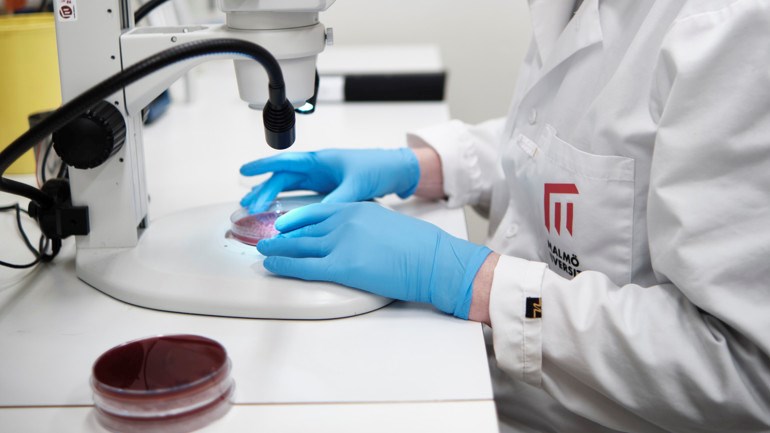Mouth bacteria can teach us more about disease prevention

The new thesis is part of the Foresight research project, which aims to find new predictive biomarkers for caries and tooth loss.
There is a great need to learn more about how diseases, such as tooth loss and caries, can be prevented. In a new thesis, oral bacteria have been studied at the molecular level to gain a better understanding of the mechanisms that can be used to maintain good oral health.
The thesis consists of three parts, all with a theme of exploring how bacteria in the mouth respond to external factors. The first part includes a mapping of a system that bacterial cells use to regulate their functions.
It is important to focus on prevention because a repair can rarely be as good as the body's own natural defences.
Carolina Robertsson
“This system has been known in human cells for a long time and is seen to be present in different bacteria. However, it has not been studied in great detail in oral bacteria," says Carolina Robertsson, a PhD student at the Faculty of Odontology.
In the other two sub-projects, Robertsson and fellow researchers looked at a specific component in saliva, a mucus-forming glycoprotein, and a mucin called MUC5B.
“As part of our core immune system, the mucin can influence what the bacteria in the mouth do. What we have seen is that it seems to help maintain healthy conditions for the teeth and gums.”
Saliva rinses and protects against acids that could otherwise damage teeth, and it is also the main source of nutrition for oral bacteria when the mouth is healthy. However, there are still major gaps in our knowledge of how bacteria co-operate to obtain nutrients from it.
"Molecules in saliva also have specific effects on bacteria that play a role in oral health, and this is what I looked at in my thesis. If we can understand more of these mechanisms, we can use this knowledge to prevent the development of disease in the future.”
All parts of the thesis consist of microbiological studies. Several different methods were used and compared, such as confocal microscopy, gel electrophoresis, mass spectrometry, nuclear magnetic resonance, sequencing, and bioinformatic analysis.
The thesis is part of the Foresight research project, which aims to find new predictive biomarkers for caries and periodontal disease to identify patients who are at greater risk of the diseases.
“MUC5B appears to promote oral health by favouring the adhesion of 'good' oral bacteria, while also supporting the health-related activities of the bacteria. And in this way, the healthy balance in the mouth is maintained, which prevents the development of caries," says Robertsson.
"It is important to focus on prevention because a repair can rarely be as good as the body's own natural defences.”
Text: Anna Dahlbeck & Adrian Grist
More about the research and the researcher
Carolina Robertsson is set to defend her thesis External Cues in Oral Bacteria on 8 December.
The research programme Foresight will find a new generation of predictive biomarkers and strategies for prevention that can be used as tools in clinical dentistry.